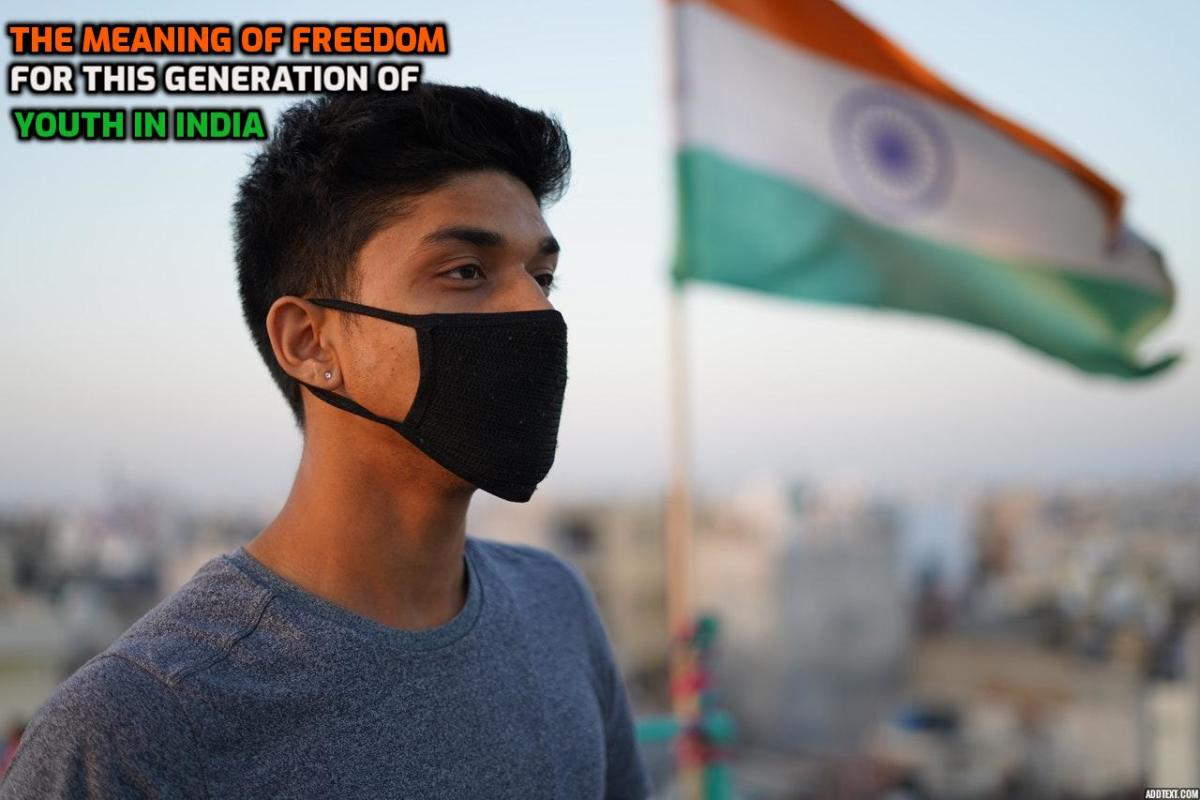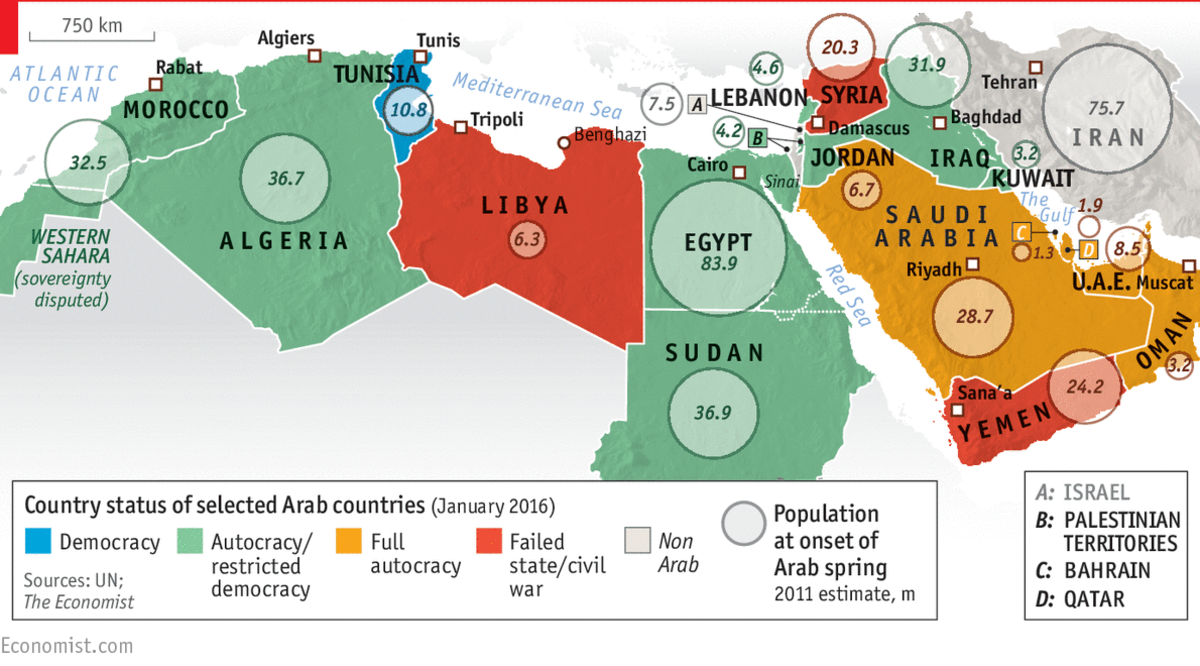The Arab Spring Revolutions and its Lessons for American Youth
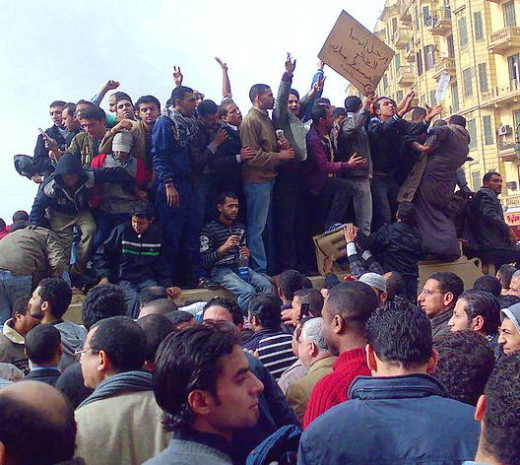
The spontaneous wave of politically driven youth toppled regimes across the Middle East in 2011. In extreme contrast, America's teens lack the conviction for lasting change.
From Lost to Found, and with a Vengeance
The generation once dubbed "the lost generation" of the Middle East, who scholars predicted couldn't change the cycle of authoritarianism, has created a spark of democracy in the bleakest of circumstances. With the help of Facebook and other social platforms, the Arab world was ablaze in a fervor of democratic unity.
The number one concern of Middle Eastern youth, according to Zakaria in TIME magazine, was to live in a free society that provided them the opportunity for stable work. With around sixty percent of the North Africa and Middle Eastern regions under the age of thirty, the youth have incredible political leverage. And they exercised it in 2011, working together to tear down corruption wherever it hid.

From Found to Flop: America's Story
Let's face it, many in my generation (18-30) idolize the sixties and seventies. The overall appeal of these years is the excitement at the prospect of social change. Years of political dissent against the Vietnam War, public demonstrations for equal rights, experimentation with mind altering substances,etc pushed the envelope. Rebellion is fashionable.
That's the problem. Time and time again I hear people my age complaining about healthcare, college tuition and its twisted sister, bank loans, and everything else under the sun. It ends there. The steaming frustration of dealing with such illogical nuisances cools into ambivalent compliance.
Why?
Maybe its because the failed Occupy movement did not produce change, as did its foil, the Jasmine Revolution in Tunisia. Occupy pioneers admitted that they were inspired by their ideological brothers and sisters across the world.
However, solidarity isn't enough.
I argue that the difference in effectiveness between the protests by Arab youth and the Occupy movement lies in three factors: media coverage, political circumstances, and the collective tenacity of the group.
Absurdity in passion's place...
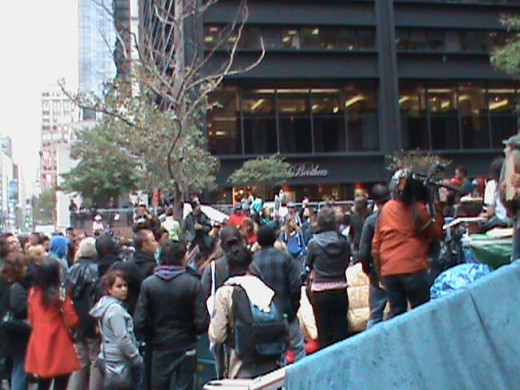
This article isn't meant to be an in-depth analysis. There are just some similarities and differences that should be recognized. First, the media that covered the Mid East revolutions hailed Arab youth as inspiring and awesome. It was persistent, unified calls to regime changes across two continents. Even in the face of police brutality, the people continued to sing the song of the Jasmine Revolution and stood by one another.
Occupy, while it lasted, was inspiring as well. I am truly impressed with the turn out. Friends of mine were caught in the energy; the potential of the movement. The climax, however, was disappointing. The American media bashed our generations' claim that Wall Street is part of the problem. It was a blow Occupy could not overcome.
Politics played a role. Although neither Occupy nor "Jasmine" had structured demands from the government, I believe that the Mid. Eastern youth simply presented an ultimatum; step down, or continue to hide in your palaces.Occupy was merely a culmination of fed up students in the river without a paddle.
We have dreams of starting our lives, debt-free and ready for opportunities. Since 2008, those aspirations were made more difficult. And we all notice.
Lastly, I think the difference in outcomes between both movements speaks volumes to the tenacity of the people involved. Arab youth wanted it more, and that's how age-old monarchs fell in the wave of democracy that gripped the world.
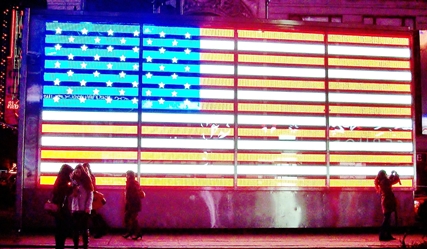
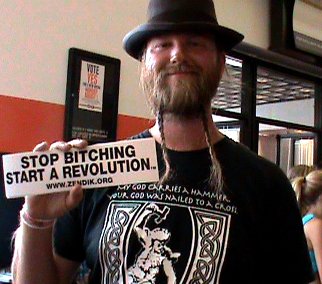
Transcending Spirit Connects Youth
" '[...] I appeal to the Muslim youth of Egypt to walk to the beat of their own drum but also learn from the youthful American revolutionaries of two centuries ago- for they wrote the most successful composition in modern history' ", head of Ahmadiyya Youth Group, Rizwan Alladin, wrote to TIME magazine in response to articles published on the Arab Spring.
It is now our youth who must now learn from them. This rejuvenation of truly democratic values stirring abroad for the last few years needs to inspire domestic change. Although our circumstances are not as dire as that of our counterparts in the Middle East, it is their spirit that captivates me. And its this unrelenting, determined spirit that fuels change.
We can start by more being informed about the issues plaguing us as a whole, and being unafraid to demand that our government base its laws on our needs. Not the other way around.
But, that's the status quo.
Because we allow it.

